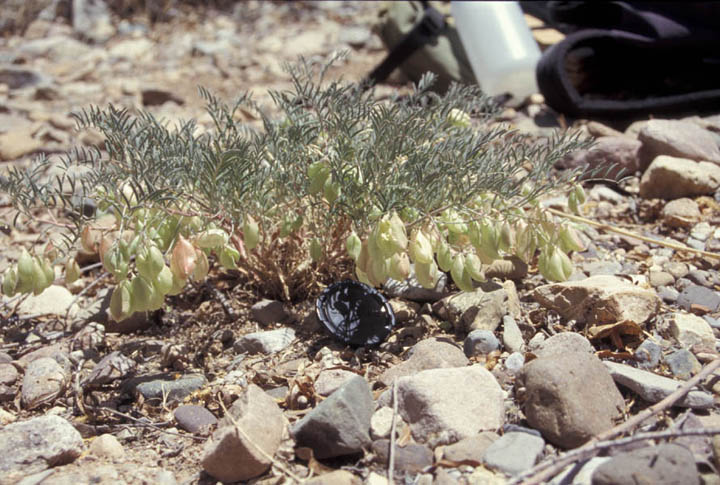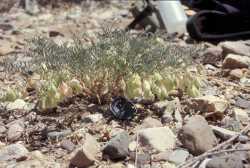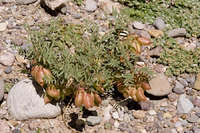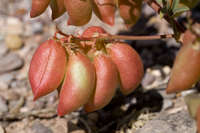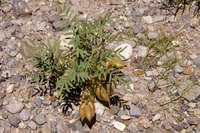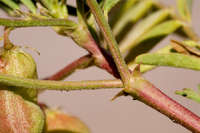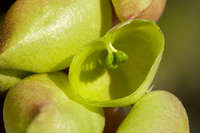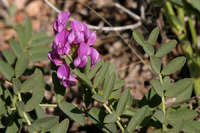Duration: Perennial
Nativity: Native
Lifeform: Forb/Herb
General: Herbaceous annuals, plants caulescent, with leaves scattered along the stems, stems to 30 cm long, erect to ascending or decumbent only towards the base, not forming mats or cushions, surfaces pubescent with basifixed hairs and exposed internodes.
Leaves: Alternate, pinnate, the leaflets narrowly linear to elliptic or somewhat oblanceolate, to 4 mm wide and usually more than 3 times as long as wide, margins entire or nearly so at the apices, surfaces not glandular-punctate.
Flowers: Bright to light purple, papilionaceous with banner, wing and keel petals, the flowers less than 10 mm long, keel petals arched, calyx teeth two-thirds as long or longer than the tube, inflorescences racemose, 5-10 flowered, the racemes not usually surpassing the leaves, peduncles not more than 6 cm long.
Fruits: Greatly inflated pods, thin-walled, 15-25 mm long, broadly ovate and very asymetric, much more strongly curved on the lower (dorsal) side than than on the upper (ventral) side, with mottled surfaces, 1-celled but with the ventral suture sometimes introver
Ecology: Found on plains and mesas, in oak-walnut woodland, from 1,500-7,000 ft (457-2134 m); flowering March-May.
Distribution: s CA, AZ, NM, s CO, s TX; south to c MEX.
Notes: Distinguished by being an ascending to decumbent annual or biennial; leaves all along stems; the mostly narrow, linear leaflets which are mostly pubescent on the bottoms; flowers <10 mm; and the 1-celled, greatly inflated pods. This species has been recognized in the past as Astragalus allochrous var. playanus.
Ethnobotany: Unknown, but other species in the genus have uses.
Synonyms: Astragalus allochrous var. playanus
Editor: LCrumbacher 2012, FSCoburn 2015
Etymology: Astragalus comes from the Greek astragalos meaning "ankle bone" and an early name applied to some plants in this family because of the shape of the seeds, and wootonii is named for Elmer Otis Wooton (1865-1945).


